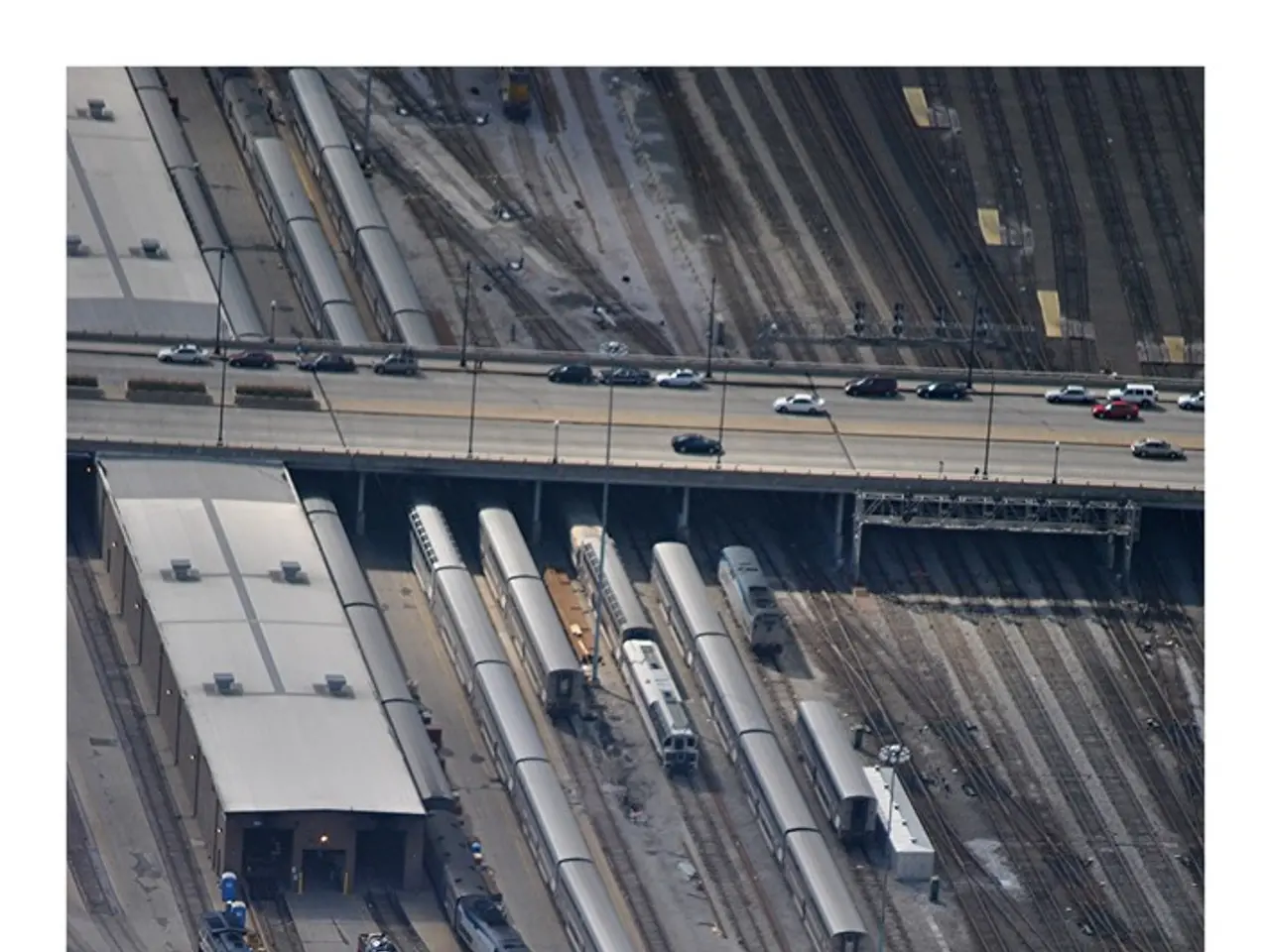Checking the Building Safety Scene in Florida: A Breakdown
Frequency of Building Inspections in Florida Unearthed
Are you a Florida resident living in an older building and questioning the inspection frequency? Here's a rundown for clarity.
When it comes to ensuring the safety, structural integrity, and code compliance of Florida's structure, the inspection frequency varies according to several factors, such as the building type, local regulations, and occupancy classification.
Regular Check-ups
Inspectors periodically conduct these routine inspections to review the condition of buildings and assess their compliance with building codes, ordinances, and regulations. These evaluations typically cover various aspects of building construction, like structural integrity, electrical systems, plumbing, fire safety, and accessibility.
Yearly Verifications
Specific types of buildings in Florida, such as commercial properties, multifamily residential buildings, and public facilities, are subject to yearly inspections to ensure they remain safe, habitable, and compliant with building codes and regulations. These inspections may consist of checks of structural elements, mechanical systems, fire protection measures, and life safety features.
Special Assessments
In response to certain events, conditions, or regulatory requirements, special inspections are carried out. Examples include pre-construction inspections, progress inspections, and final inspections during construction projects, as well as specific checks of building components or systems like elevators, fire alarms, and sprinkler systems to ensure compliance with applicable standards.
Adherence to the Rules
Code compliance inspections verify that buildings and construction projects adhere to the applicable building codes, zoning ordinances, and regulatory requirements. These inspections confirm that construction work meets minimum safety standards, design specifications, and quality requirements specified in the building code.
Staged Evaluations
Milestone inspections are carried out at crucial stages of the construction process to verify compliance with regulatory requirements, ensuring if construction work proceeds according to approved plans and specifications. Examples include foundation inspections, framing inspections, plumbing rough-in inspections, electrical rough-in inspections, and final inspections.
Deviations and Exemptions
In specific situations, building owners may wish to seek variances or exemptions from routine inspection requirements based on unique circumstances or conditions. Variances might be granted for buildings featuring unique design elements, historic properties, or alternative construction methods departing from conventional building code requirements. Exemptions may also be provided for certain types of buildings or structures that pose minimal risk to public safety or have limited occupancy.
It is essential to know that regular building inspections are crucial for maintaining structural integrity and compliance. Our company recommends conducting thorough evaluations every 3-5 years, depending on the building's age and usage. With over 20 years of experience in Structural Engineering & Assessments and Construction Monitoring, we assure reliable building inspections.
For more information, contact us at 407-663-5312 or email us at [email protected].
Additional Information:
- Condominium and Cooperative Building (taller than 3 stories): In Florida, such structures undergo milestone inspection programs, mandating building recertification inspections at specified age milestones, with a recertification inspection required at 30 years (formerly 40 years), followed by every 10 years thereafter.
- Commercial and Multifamily Residential Buildings (over 5 stories): Inspection frequency varies by locality, focusing on structural and facade safety and life safety issues.
- Educational Facilities (public, private, charters, and vocational schools): These buildings undergo annual physical plant inspections by the Florida Department of Health to ensure maintenance, sanitary health, safety practices, and more.
- Public gathering places and commercial buildings: may require more detailed inspections, including building, mechanical, electrical, and plumbing systems, often necessitating inspectors having multiple certifications.
[1] Building Safety Journal[2] Florida Department of Business & Professional Regulation Division of Florida Condominiums, Timeshares, and Mobile Homes[3] NFPA Building and Life Safety Codes[4] Miami-Dade County Building Department[5] Florida Department of Health Inspections at Schools
- To ensure compliance with building codes, some commercial properties, multifamily residential buildings, and public facilities undergo annual inspections, covering structural elements, mechanical systems, fire protection measures, and life safety features.
- In Florida, condominium and cooperative buildings taller than three stories are subject to milestone inspection programs, which mandate recertification inspections at 30-year intervals and further inspections every 10 years thereafter.
- Our company advises conducting thorough evaluations of residential buildings every 3-5 years, depending on the building's age and usage, to maintain structural integrity and ensure compliance.
- For historical properties, building owners may seek variances from routine inspection requirements to accommodate unique design elements or alternative construction methods that depart from conventional building code requirements.







